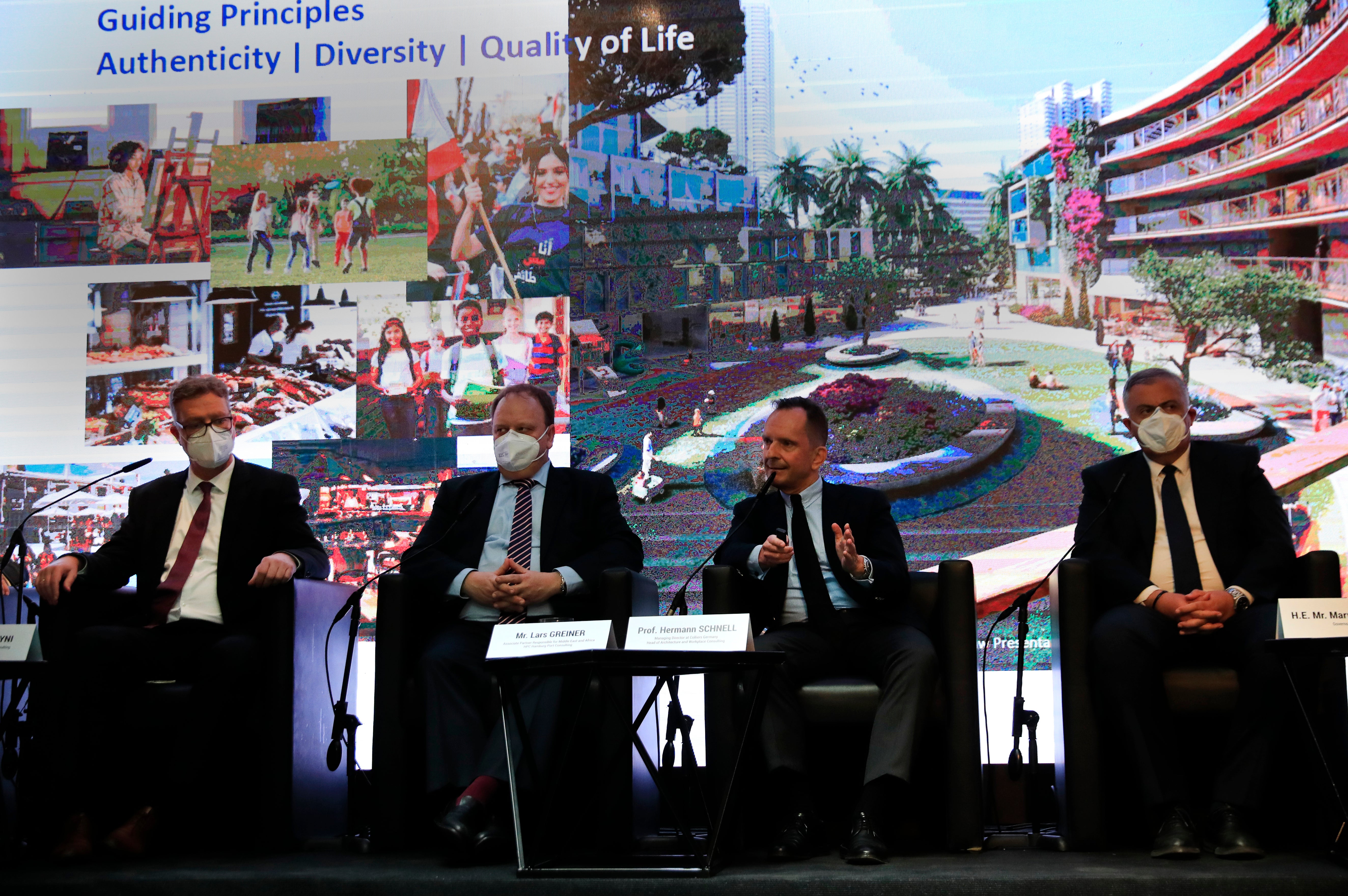German firms put forward proposal to rebuild Beirut port
Representatives of several private German companies have met Lebanese officials and briefed them on a multi-billion dollar study to rebuild the port of Beirut and surrounding neighborhoods destroyed by a massive explosion last year

Your support helps us to tell the story
From reproductive rights to climate change to Big Tech, The Independent is on the ground when the story is developing. Whether it's investigating the financials of Elon Musk's pro-Trump PAC or producing our latest documentary, 'The A Word', which shines a light on the American women fighting for reproductive rights, we know how important it is to parse out the facts from the messaging.
At such a critical moment in US history, we need reporters on the ground. Your donation allows us to keep sending journalists to speak to both sides of the story.
The Independent is trusted by Americans across the entire political spectrum. And unlike many other quality news outlets, we choose not to lock Americans out of our reporting and analysis with paywalls. We believe quality journalism should be available to everyone, paid for by those who can afford it.
Your support makes all the difference.Representatives of several private German companies on a visit to Lebanon outlined on Friday an elaborate, multi-billion dollar study to rebuild the port of Beirut and surrounding neighborhoods destroyed by a massive explosion last year.
The horrific Aug. 4 explosion of nearly 3,000 tons of ammonium nitrate, a highly explosive chemical used in fertilizers, killed 211 people and injured more than 6,000. The material had been stored at a port warehouse for years. The blast — one of the largest non-nuclear explosions in history — badly worsened Lebanon's economic crisis that saw hundreds of thousands plunged into sudden poverty.
Several countries are said to be interested in rebuilding the port and the surrounding areas, including Turkey and China, but Germany’s consortium, led by Hamburg Port Consulting and Colliers, was the first to visit Lebanon with a plan in hand that they presented to Lebanese officials.
Beirut's port, with an area of 1.2 million square meters (12.9 million square feet), is by far the largest in Lebanon, a tiny nation of 5 million on a strategic Mediterranean crossroads between Asia and Europe.
But the proposal to rebuild the port cannot proceed until a new government is formed in Lebanon and like most international donors and foreign companies, the German delegation made it clear no money would be spent in Lebanon before major reforms are undertaken to fight widespread corruption.
“Money flows where trust goes,” Suheil Mahayni, managing director at Hamburg Port Consulting, told reporters at the end of the visit. A new government would need to ensure “full transparency so that the money invested is spent to the benefit of the Lebanese people.”
Alia Fares of the Lebanese German Council for Archaeology and Culture said the study includes spending $300 million on restoring historic neighborhoods surrounding the port.
After Lebanon’s 1975-1990 civil war ended, a private company was in charge of rebuilding Beirut’s downtown, leading to high rises with multi-million dollars apartments and restaurants and shops out of reach of many poor Lebanese.
The office of Lebanon's caretaker Prime Minister Hassan Diab said he met with the German delegation on Thursday and received its “preliminary study on how to reactivate the port of Beirut for trade and tourism.” There were no further details.
Lebanon’s government resigned just days after the port blast. In October, former Prime Minister Saad Hariri was named to form a new Cabinet but has failed to do so since amid political bickering. The country meanwhile has slid deeper into crisis, with the national currency losing around 85% of its value.
According to the study, a total of $7.2 billion will be spent over the years to rebuild the port, nearby residential areas, outdoor facilities, technical infrastructure, land reclamation and a new beach. The project will make $30 billion of indirect profitability and create 50,000 permanent jobs over a period of 30 years.
International donors demand that Lebanon implement economic changes in order to get loans and grants pledged at the CEDRE economic conference in Paris in April 2018. They have pledged $11 billion for Lebanon but the money is still blocked as they seek assurances the funds will be well spent in the corruption-plagued country.
Germany’s Ambassador to Lebanon Andreas Kindl said there is a clear international commitment there would be no financial support for any reconstruction before there are “substantial reforms, credible reforms, economic and political reforms."